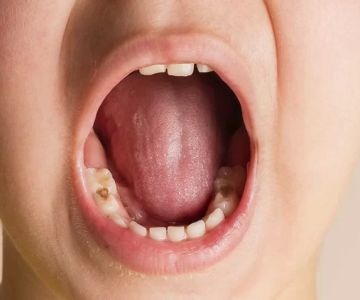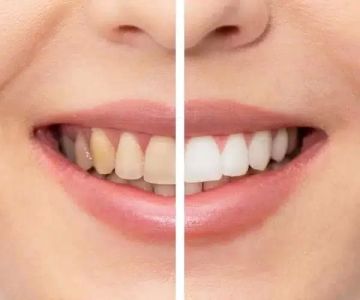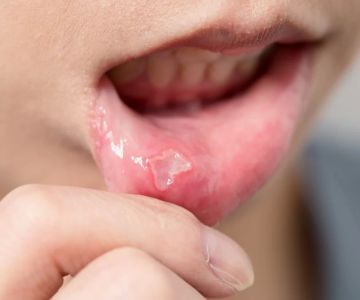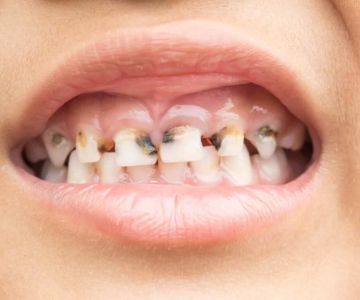Effects of Acidic Foods on Dental Enamel
Our teeth are constantly exposed to the foods and drinks we consume. While some foods are beneficial to oral health, others can be damaging. One of the main culprits in this regard is acidic foods. These foods can have a significant impact on your dental enamel, the hard outer layer of your teeth that protects them from decay and damage. In this article, we’ll delve into the effects of acidic foods on dental enamel, explaining how they affect your teeth, and providing practical advice on how to protect your smile.
1. What Is Dental Enamel and Why Is It Important?
Dental enamel is the hardest substance in the human body. It serves as the protective outer layer of each tooth, guarding against physical damage and preventing tooth decay caused by bacteria. Enamel is translucent, meaning that the color of your teeth is actually determined by the underlying dentin, not the enamel itself. Though incredibly tough, enamel is not invincible. Over time, it can be worn down by various factors, particularly through the consumption of acidic foods and drinks.
When enamel wears away, the dentin beneath becomes exposed, leading to increased sensitivity, discoloration, and a greater risk of cavities. Once enamel is damaged, it cannot regenerate, which makes its preservation crucial for maintaining good oral health.
2. How Acidic Foods Affect Dental Enamel
Acidic foods, such as citrus fruits, soda, wine, and vinegar, can cause the enamel on your teeth to soften. This occurs because the acids in these foods lower the pH level in your mouth, creating an acidic environment that erodes enamel over time. The process is gradual, but frequent exposure to acidic substances can lead to significant wear on your enamel.
When you consume acidic foods, the pH level in your mouth can drop to a point where enamel begins to demineralize. This demineralization process weakens the enamel, making it more susceptible to cavities and other types of damage. Repeated exposure to acidic foods accelerates this process, which is why it’s essential to manage your intake of such foods to protect your teeth.
3. Common Acidic Foods and Drinks to Watch Out For
There are many foods and drinks that are highly acidic and can lead to enamel erosion. Some of the most common ones include:
- Citrus fruits: Lemons, oranges, and grapefruits are known for their high acidity, which can soften enamel over time.
- Soda: Both regular and diet sodas are acidic due to their carbonation and added citric acid, which can contribute to enamel erosion.
- Wine: Both red and white wines are acidic and can be harmful to enamel if consumed frequently.
- Vinegar: While commonly used in salad dressings and other dishes, vinegar’s acidity can also negatively affect your enamel.
- Pickles: The acidic solution in which pickles are preserved can wear down enamel if consumed in excess.
While these foods and drinks are not harmful in moderation, frequent and prolonged exposure can increase the risk of enamel damage. It’s important to be mindful of your consumption of these acidic substances to prevent long-term damage to your teeth.
4. Signs of Enamel Erosion
Enamel erosion is a gradual process, and you may not notice any significant changes right away. However, there are several signs that your enamel may be wearing down:
- Increased sensitivity: If you experience discomfort when eating or drinking hot, cold, or sweet foods, it may be a sign that your enamel is thinning.
- Tooth discoloration: Enamel erosion can cause the underlying dentin to become more visible, leading to a yellowish appearance of the teeth.
- Rough or jagged edges: When enamel is worn down, the edges of your teeth may become rough or chipped, making them more vulnerable to further damage.
- Hollow or pitted teeth: As enamel erodes, small pits or cavities may form on the surface of the teeth, which can lead to decay if not addressed.
If you notice any of these symptoms, it’s important to visit a dentist to assess the condition of your enamel and determine the best course of action for treatment and prevention.
5. How to Protect Your Enamel from Acidic Foods
While it’s not always possible to avoid acidic foods, there are several steps you can take to minimize the damage to your enamel:
- Rinse your mouth with water: After consuming acidic foods or drinks, rinse your mouth with water to help neutralize the acids and restore your mouth’s pH balance.
- Wait before brushing: Brushing immediately after consuming acidic foods can further damage softened enamel. Wait at least 30 minutes before brushing your teeth to allow the enamel to re-harden.
- Use a straw: When drinking acidic beverages like soda or fruit juices, use a straw to minimize contact between the liquid and your teeth.
- Choose less acidic alternatives: Opt for less acidic fruits like bananas, melons, and berries. Similarly, try to limit your intake of soda and other highly acidic drinks.
- Use fluoride toothpaste: Fluoride helps remineralize enamel and can help protect your teeth from further damage. Choose a toothpaste that contains fluoride to strengthen your enamel.
By following these simple steps, you can help protect your dental enamel and keep your smile healthy for years to come.
6. Professional Dental Care for Enamel Protection
In addition to taking care of your enamel at home, regular visits to the dentist are essential for maintaining optimal oral health. A dentist can detect early signs of enamel erosion and recommend treatments such as fluoride varnishes or dental sealants to help protect your teeth from further damage.
If you have concerns about enamel erosion or other aspects of your dental health, don't hesitate to reach out to a professional. At [Dentistry Toothtruth], we offer expert advice and personalized dental care to ensure your teeth remain strong and healthy.
SEO Title: How Acidic Foods Affect Dental Enamel and How to Protect Your TeethSEO Keywords: effects of acidic foods on dental enamel, how to protect enamel, enamel erosion, dental enamel, acidic foods and teethSEO Description: Discover the effects of acidic foods on dental enamel and learn practical tips to protect your teeth. Prevent enamel erosion and keep your smile healthy with expert advice.






 Westgate Dental Arts
Westgate Dental Arts Coventry Family Dental
Coventry Family Dental Familia Dental
Familia Dental Dr. Daniel S. Fife, DDS
Dr. Daniel S. Fife, DDS Dentistry At Suburban Square: Michael I. Wollock, DMD
Dentistry At Suburban Square: Michael I. Wollock, DMD Comfort Care Dental
Comfort Care Dental The Importance of Oral Health Education During Pregnancy for a Healthy Pregnancy
The Importance of Oral Health Education During Pregnancy for a Healthy Pregnancy Why Skipping Dental Checkups Can Lead to Bigger Oral Health Problems
Why Skipping Dental Checkups Can Lead to Bigger Oral Health Problems Advantages of Porcelain Dental Restorations
Advantages of Porcelain Dental Restorations Best Tips for Brushing Your Teeth Properly for Healthy Gums: Essential Techniques for Oral Health
Best Tips for Brushing Your Teeth Properly for Healthy Gums: Essential Techniques for Oral Health How Can Diabetes Cause Tooth and Gum Problems? Preventing and Managing Oral Health Issues
How Can Diabetes Cause Tooth and Gum Problems? Preventing and Managing Oral Health Issues Healthy Habits for Promoting Good Oral Health and Hygiene: Tips for a Healthy Smile
Healthy Habits for Promoting Good Oral Health and Hygiene: Tips for a Healthy Smile